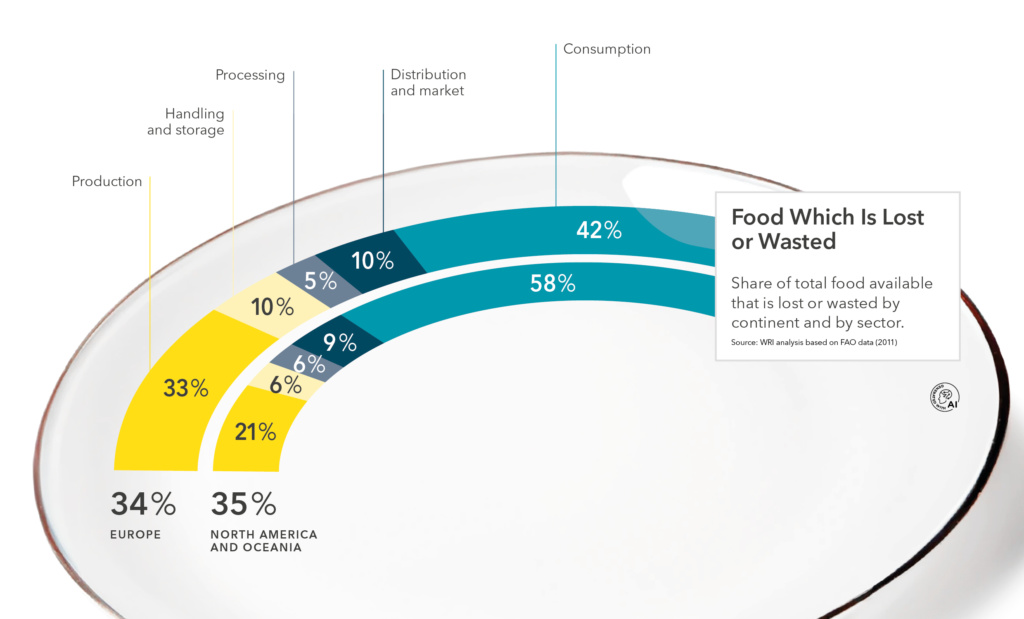News & Trends
Menu Plan 2033 – The Climate-Friendly Food of Tomorrow

FINANCIAL INSTITUTIONS ARE IMPORTANTSTAKEHOLDERS FOR GETTING OUR FOOD SYSTEMS BACK ON TRACK AND PREVENTING DAMAGE TO OUR ENVIRONMENT AND ECONOMY. A ROADMAP FOR A MORE SUSTAINABLE FUTURE.
Our food plays a key role in the fight against global warming and the conservation of habitats. According to the non-profit start-up EAT, it would be possible to feed ten billion people by 2050 without surpassing the limits of our planet. To achieve this, we would have to eat in a healthier way, i.e. consume less meat and adapt our use of resources. Of course, the problem is more complex than this, and all the stakeholders in the area of food production need to take action, not just consumers. Financial institutions have considerable influence over the transformation of our foodsystems. They play an important role in providing significant financial resources for supporting the necessary transformation and achieving the global goals in the areas of climate change and conservation. The “Planet Tracker” think tank has identified several measures for achieving a significant impact in the area of food production and consumption by 2030, with financial institutions at the heart of the measures.
One third of all food produced is never consumed
Less Methane, More Alternative Proteins
A key measure for the transformation of our food systems is to be found in the area of methane emissions from livestock. When methane is released into the atmosphere, it increases the greenhouse effect and contributes to global warming 80 times more quickly than CO2. Consumers are already able to achieve short-term successes by eating less meat. Investors can make a positive contribution by investing in companies that are committed to reducing their methane emissions and which take measures to prevent methane gas in their production processes. Investing in plant-based meat substitutes as well as proteins from other sources, such as insects, algae, fungi, worms and lab-grown animal proteins (also known as “clean meat”) can also help to prevent methane emissions.
Fighting Food Waste and Loss
However, it would be even more effective to ensure that so much food doesn’t have to be produced in the first place. After all, a lot of food ends up being thrown away. Another measure therefore aims to ensure that less food is wasted and/or lost. Food loss is when food is lost during its production and along the supply chain — before it has even reached the retailers. According to an estimate by the Food and Agriculture Organisation of the United Nations, approximately one third of the food produced worldwide isn’t ever consumed. Food waste, in contrast, is caused by retailers and consumers. The hunger for investments to fight food waste and food loss is considerable: in the US alone, private investment in this area increased by 30 per cent to 4.8 billion dollars in 2021. The investment opportunities range from AI technologies in agriculture in order to detect and combat pest infestations at an early stage, for example, through to the recycling of production waste and the production of biogas from food waste.
In the USA, private investment in food waste and loss increased by 30 per cent.
Great Opportunity — Great Impact
The Planet Tracker report identifies further measures in the field of regenerative agricultural systems, such as the prevention of deforestation for the creation of agricultural space and in the area of more transparent supply chains. Financial institutions play an important role in all these measures, as they can provide significant funding for the transformation. If they decline to take on this task, they risk both damaging their reputation and lost profits. After all, as estimated by Race to Zero, a UN initiative, companies that are at the heart of the food supply industry could lose up to 26 per cent of their value because of climate change. And this figure certainly isn’t irrelevant for the industry: the 40 largest food companies in the world have a combined value of 2.2 trillion US dollars and employ nearly 8 million people. And yet the opportunities for these companies are considerable: they are increasingly able to benefit from a shift in consumer demand towards more sustainable products, while protecting their reputation at the same time. Companies that take clear and decisive action therefore have the best chance of benefiting from the transformation of food systems, while companies which fail to act could potentially suffer a significant loss in value — up to 15 per cent for the agricultural industry and roughly 4.5 per cent for the restaurant and food supply industry.

The Globalance-View
Anyone who wants to invest and develop assets over the long term can not avoid the issues surrounding global nutrition: it is important to recognise the intricacies of the interactions between climate, nature and agriculture on the one hand, and access to affordable, healthy food on the other. Globalance has defined the criteria that companies must fulfil to be classified as future-proof. Technological advances are causing surprising company names to adapt the world of agriculture to the conservation of resources with the use of digital tools.
Immerse yourself in the world of future trends at our events. Afterwards, there is often a climate-friendly “Apéro Riche”, where you can experience how delicious sustainability can be.



